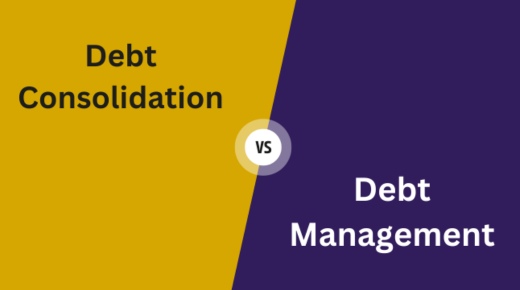A debt consolidation loan is a novel loan where certain funds are utilized for the aim of paying off existing unsecured debts. Generally, this also usually comes in the form of an unsecured loan which is utilized to pay off one or more credit card debts. One can also refinance a mortgage or additionally a second mortgage on the home, utilizing the new funds to pay off those unsecured debts.
Advantages of debt consolidation loan
One could save money
If a person can avail a loan with a reduced interest rate, one can possibly save an ideal deal of capital utilizing this method. As of 2022, the average rate of interest on consolidation loans for consumers with good credit such as a FICO score of 690 to 719 is 15.5%.
Fewer payments to manage
One can also consolidate payments in such a way – just a single payment a month, instead of individual payments for almost all the account.
Disadvantages of debt consolidation loan
Potential credit damage
Various lenders will essentially need to close the accounts being paid off by the loan. This may possibly have a negative impact on the credit score as the age of the active accounts usually decreases.
You could put your property at risk
It’s vigilant to convert unsecured debt such as credit cards into secured debt known as the (mortgage). If a person refinanced a home with an eye toward reducing credit card debt, nevertheless, then find oneself struggling to manage the novel mortgage payment, one could ensure to put the house at any risk.
It can be costly
This is a possibility of fees associated with an opening of the loan.
Bad behavior won’t change
If the debt resulted from any bad or any unhealthy spending habits, moving the debt to a novel account won’t particularly do anything to change such a behavior. One would still have to make a firm commitment in order to repay the debt as well as to change the approach to spending.
FINAL VERDICT: A debt consolidation loan can be a good option if one is overburdened with any credit card debt, however to have a good credit as well as it is generally responsible with capital. The appropriate loan can potentially save you significant capital along with simplifying the repayment process. Ensure to remember that a consolidation loan happens to move debt from one place to another – one would still require to make the payments along with avoiding creating new debt in order to be successful.
Debt Management Plan
A debt management plan, or DMP, is gradually offered as well as serviced by a credit counseling agency. To follow an assessment of the financial situation, one might be provided the opportunity to consolidate the unsecured debts into a structured repayment program. This is not a loan. One would make a single payment to the credit counseling agency, which would then make sure to disburse the funds to the creditors on their behalf.
Advantages
No credit requirement
Since a DMP is not just a loan, there is no possible credit needed to essentially qualify.
Expert support and advice
A person can receive ongoing counseling along with the education on managing as well as to eliminate debt.
Significant savings
Particular creditors offer predominantly reduced rates of interest for accounts being paid through a DMP. The average interest rate for the creditor accounts on an MMI DMP in 2021 was 6.41%.
Fewer payments to manage
An individual can only make a single payment every month.
Budget-friendly payments
DMPs are designed to fit into the existing budget. One will not be provided a DMP if it isn’t a good fit for such a situation.
Past due accounts may be considered current
Overdue accounts are gradually still eligible to be included on the plan. Numerous creditors agree to bring disregardful accounts current post a set number of DMP payments.
Accelerated payoff
Accounts are usually paid off within a period of five years, with various clients to become debt-free in approximately three years.
Disadvantages
Short-term credit score dip
With consolidation loans, the accounts to be included on a DMP will be closed, which could have an adverse impact on credit score. On the median, nonetheless, MMI DMP clients see such credit scores enhanced by over 60 points post two period years on the program.
Not all debts can be included
Secured debts are typically not allowed on DMPs, meaning one will still be required to manage the mortgage as well as the car payments separately. Student loans cannot be included on the DMP at this time.
Monthly fees
Although hardship waivers are essentially easily available, certain DMPs always include a monthly fee. Fee amounts varied depending on where one lives and how many debts a person is repaying, however the average fee for MMI DMP clients was $25 in 2021.
To conclude
A debt management plan is an essential solution for numerous consumers who have already begun to miss payments, who have damaged credit, who require structure along with hands-on guidance, or who require assistance in changing their financial habits.




